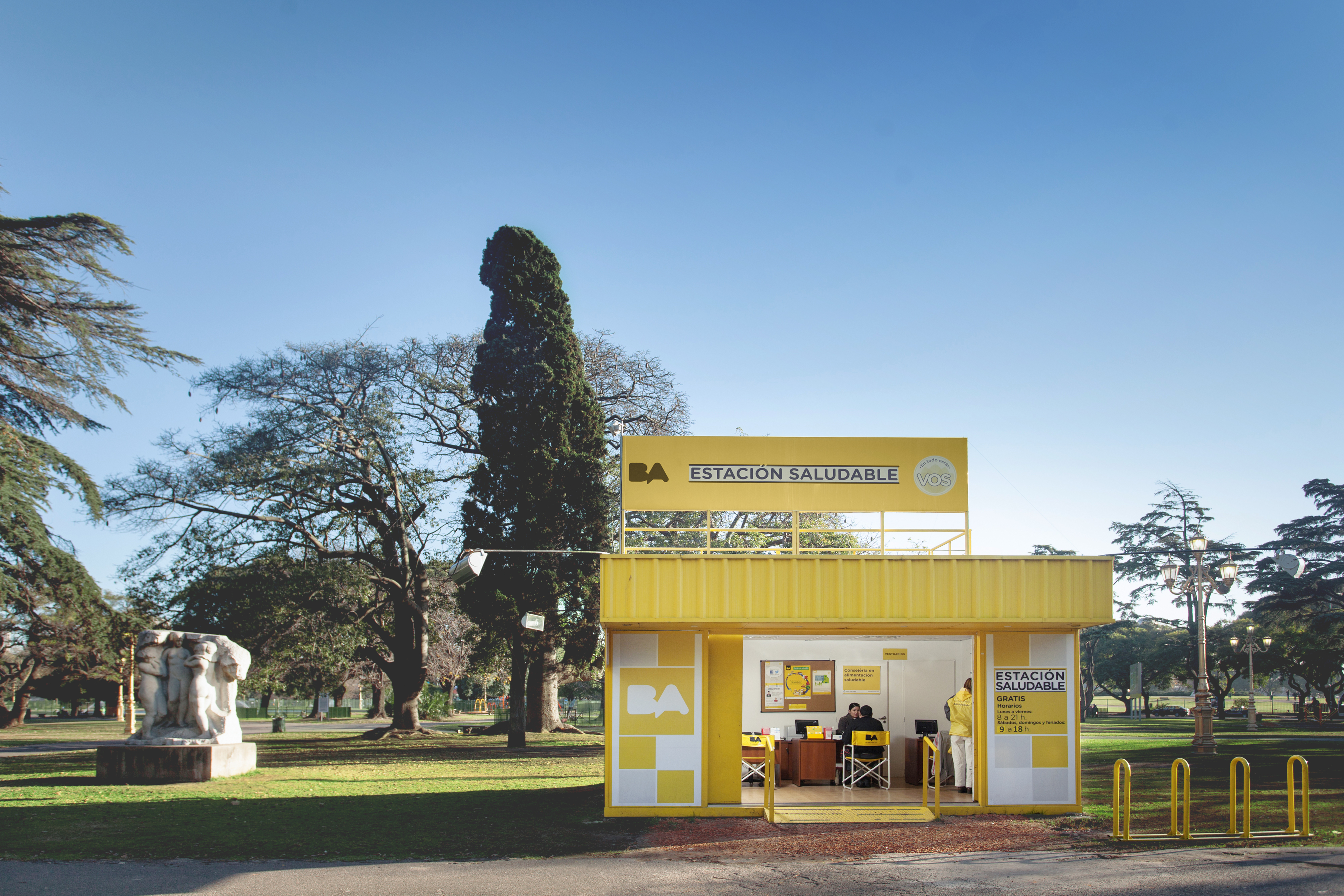Part of the Food Policy Snapshot Series
Food Policy Snapshot: Wellness Stations
Overview: The Buenos Aires city government has opened Wellness Stations throughout the city that offer free preventative health screenings and nutrition counseling for all residents.
Location: Buenos Aires, Argentina
- Population: 2.8 million (2010 UN census data)
- The capital and largest city in Argentina
Progress to date: Forty Wellness Stations have been opened throughout the city.
- This includes two “mobile” Wellness Stations that are deployed in different locations to coincide with large events or to service populated areas.
- The Wellness Stations remain a city-based initiative, however, the political party responsible for the initiative have recently entered the national government with the objective of making similar improvements on a national level. There has also been a plan to extend the stations to the city of Rosario.
Food policy category: Diet and Nutrition; Social and Economic Equity; Preventative Healthcare
Program Initiated: 2012
Program goals:
- To ensure access to routine health screenings and health information for all Buenos Aires residents
- To promote health equity providing free preventative health care
- To support and facilitate healthy lifestyles through nutrition information and fitness resources
How it works:
- Wellness Stations are located throughout Buenos Aires — intentionally constructed in busy public spaces such as train stations and parks
- Wellness Stations staff doctors, nurses, and nutritionists; citizens can visit at any time and receive weight, height, blood pressure and blood sugar measurements as well as nutrition counseling at no cost
- Some stations offer free exercise classes such as yoga or organize walking groups
- Fruit vending machines are found within the Wellness Stations to encourage healthy snacking
Why it is important:
- This program makes preventative healthcare services accessible to all city residents; ensuring health equity.
- It demonstrates the government’s dedication to preventative medicine for all city residents; it highlights the importance of nutrition and routine health screenings.
- The program facilitates a healthy diet through education (nutrition counseling) and access to healthy foods (healthy vending machines).
Evaluation: After two years, half a million Buenos Aires residents had used the public services. One evaluation found that the check-up service is primarily being used by people with known medical conditions and need regular check-ups (ie. diabetes, high blood pressure). The Wellness Stations have proved to be a quicker and easier way to regularly see a medical professional than booking an appointment at a clinic. The fitness activities (yoga, stretching, walking groups) appear to attract almost exclusively women, mainly residents who live nearby.
Learn more: Buenos Aires City Government Website:
https://www.buenosaires.gob.ar/desarrollosaludable/estaciones-saludables
Point of Contact: Department of Healthy Development: desarrollosaludable@buenosaires.gob.ar
Similar practices: The city of Quito in Ecuador has also developed Wellness Stations after working with the city of Buenos Aires to replicate the program. This is the first year of the program in Quito.
References:
- Buenos Aires City Government (2016). Health and Nutrition. Retrieved April 8, 2016, from https://www.buenosaires.gob.ar/bweb/search?keys=nutrition&facet_type=
- Andy Bellatti, A. (2014). “Five Food Policy Lessons the US Could Learn from Latin America.” Civil Eats. Retrieved April 8, 2016.
- Estevez, A., López, C., Acuña, P. I., Arranz de Finger, S. (2014). “Wellness Stations: Evaluation of the Program.” Asociación Conciencia y Fundación el otro y Red Puentes Internacional. Retrieved April 8, 2016, from https://www.elotro.org.ar/wp-content/uploads/2014.02.10.-Informe-Evaluaci%C3%B3n-Prog-Estaciones-Saludables.pdf
Photo credit: Government of the City of Buenos Aires


